homemade dog food no chicken
Homemade Dog Food Without Chicken
Chicken is a common ingredient in dog food, but it can be a source of allergies for some dogs. If your dog is allergic to chicken, you may need to find a different protein source for their food. There are many other healthy and nutritious options available, such as beef, lamb, pork, venison, rabbit, or fish.
In this article, we will discuss how to make homemade dog food without chicken. We will provide you with recipes, tips, and advice on how to make sure your dog is getting the nutrients they need.
Choosing a Protein Source
When choosing a protein source for your dog's food, it is important to consider their individual needs. Some dogs may do well with a variety of proteins, while others may do better with a single protein source. If your dog has any allergies or sensitivities, it is important to choose a protein source that they are not allergic to.

Some of the most popular protein sources for homemade dog food include:
- Beef
- Lamb
- Pork
- Venison
- Rabbit
- Fish
Choosing Other Ingredients

In addition to a protein source, your dog's food will also need to contain carbohydrates, fats, vitamins, and minerals. Carbohydrates provide energy, fats provide essential fatty acids, and vitamins and minerals are essential for overall health.
Some of the best carbohydrates for dogs include:
- Brown rice
- Oatmeal
- Millet
- Barley
- Sweet potatoes

Some of the best fats for dogs include:
- Olive oil
- Coconut oil
- Salmon oil
- Flaxseed oil
Some of the best vitamins and minerals for dogs include:
- Vitamin A
- Vitamin D
- Vitamin E
- Calcium
- Iron
- Zinc
Making Your Own Dog Food
Making your own dog food is a great way to ensure that your dog is getting the nutrients they need. It is also a more affordable option than buying commercial dog food.

To make your own dog food, you will need the following ingredients:
- A protein source
- Carbohydrates
- Fats
- Vitamins and minerals
You will also need a few kitchen tools, such as a food processor, a blender, and a measuring cup.

To begin, choose a protein source and carbohydrates. You can then add fats, vitamins, and minerals to your recipe.
Once you have gathered your ingredients, you can begin to cook your dog food. The cooking process will vary depending on the ingredients you are using.
For example, if you are using beef, you will need to brown the meat before adding it to your other ingredients. If you are using vegetables, you will need to steam or boil them before adding them to your food.

Once your food is cooked, you can puree it in a food processor or blender until it is smooth.
You can then store your dog food in the refrigerator or freezer.
Feeding Your Dog Homemade Dog Food

When feeding your dog homemade dog food, it is important to follow a few guidelines.
First, make sure that your dog is getting the right amount of food. The amount of food you feed your dog will depend on their weight, activity level, and age.
Second, make sure that your dog is getting a variety of nutrients. A healthy diet for dogs should include protein, carbohydrates, fats, vitamins, and minerals.

Third, make sure that your dog's food is fresh. Homemade dog food should be stored in the refrigerator or freezer and used within a few days.
If you are concerned about making your own dog food, you can always talk to your veterinarian. They can help you create a diet plan that is right for your dog.
Benefits of Homemade Dog Food
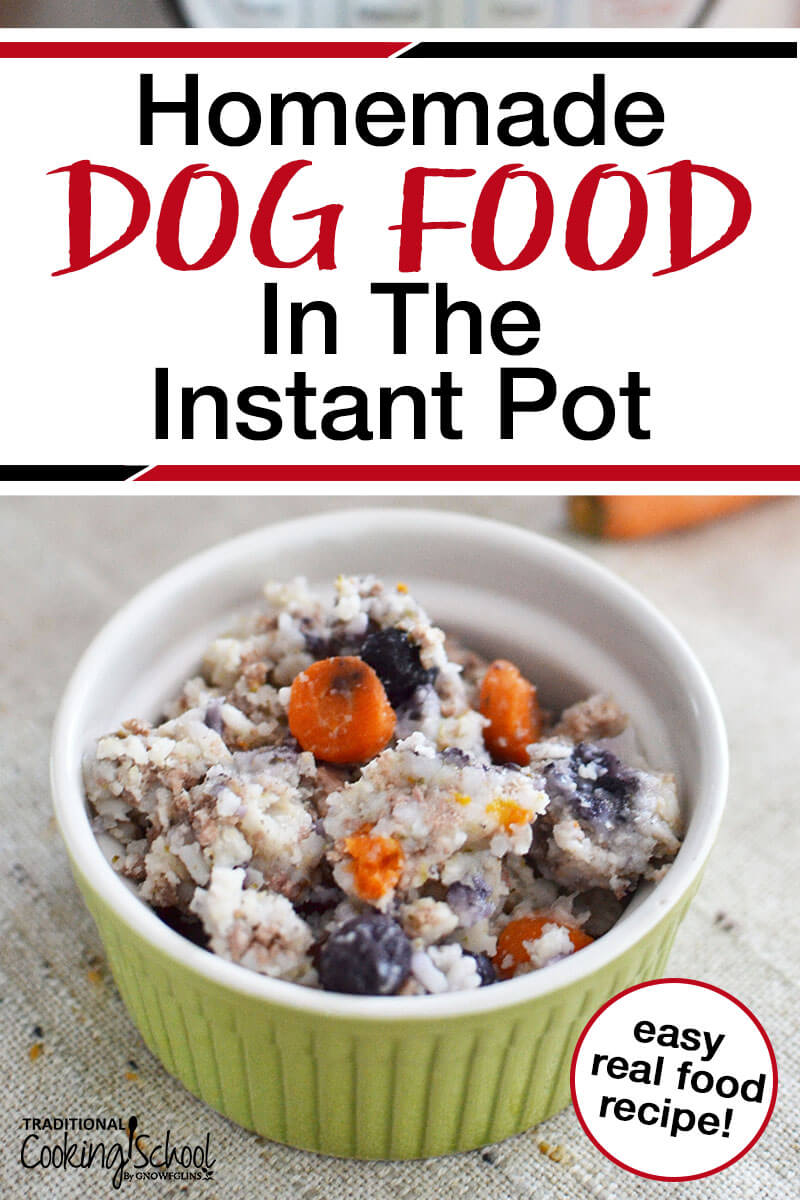

There are many benefits to feeding your dog homemade dog food.
- Homemade dog food is more nutritious than commercial dog food. Commercial dog food is often made with fillers and by-products, which can be unhealthy for dogs. Homemade dog food, on the other hand, is made with whole, unprocessed ingredients that are good for your dog.
- Homemade dog food is more affordable than commercial dog food. Commercial dog food can be expensive, especially if you are feeding a large dog. Homemade dog food is much more affordable, and you can control the cost by choosing ingredients that are on sale.
- Homemade dog food can help to improve your dog's health. A diet of homemade dog food can help to improve your dog's coat, energy level, and overall health.
Conclusion


Homemade dog food is a great option for dogs who are allergic to chicken. There are many healthy and nutritious protein sources available, and
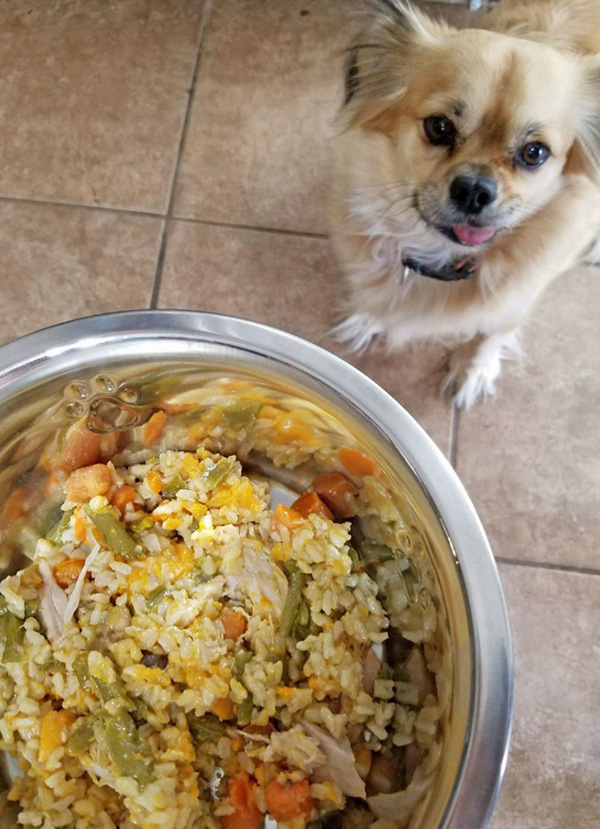
Homemade Dog Food Without Chicken

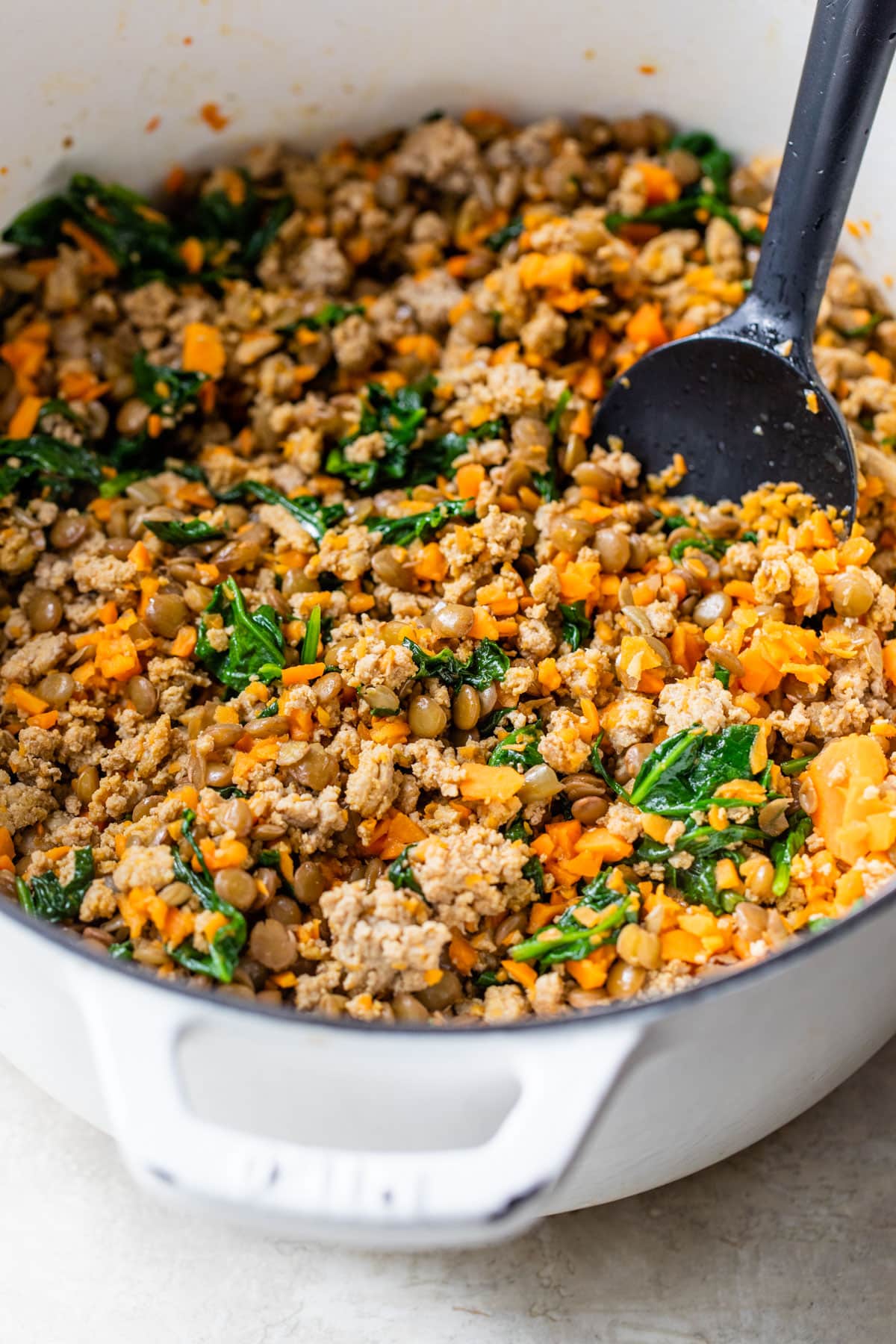
Chicken is a common ingredient in dog food, but it can be a problem for dogs with allergies or sensitivities. If your dog is allergic to chicken, or if you simply want to avoid feeding them this ingredient, there are plenty of other options available.
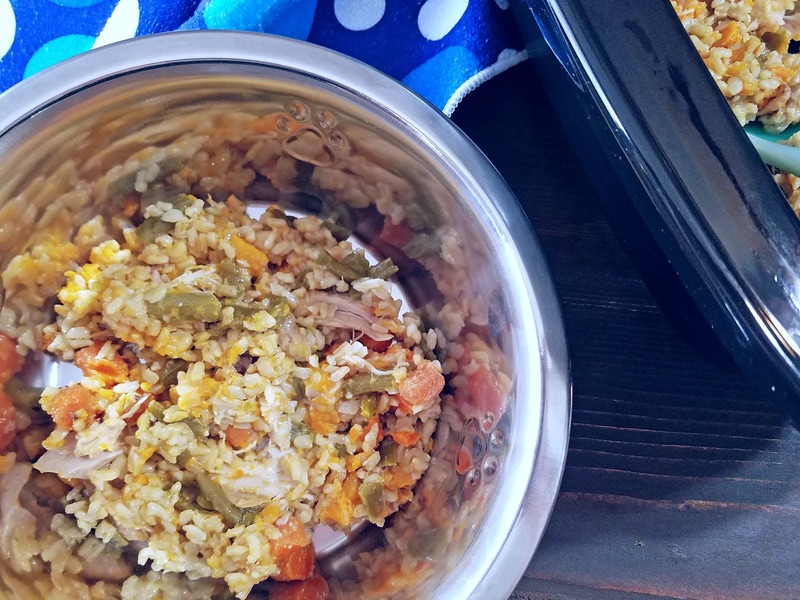
Here are a few tips for making homemade dog food without chicken:
- Use a variety of protein sources. Beef, lamb, pork, venison, and fish are all good options for dogs with chicken allergies. You can also use beans or tofu as a protein source.
- Include plenty of vegetables and fruits. Dogs need a variety of nutrients to stay healthy, and vegetables and fruits are a great way to provide them with these nutrients. Some good choices include carrots, peas, sweet potatoes, apples, and bananas.
- Add healthy fats. Healthy fats are essential for dogs' skin and coat health, and they can also help them feel full. Good sources of healthy fats include olive oil, avocado oil, and coconut oil.
- Use a high-quality dog food base. If you don't have time to make your own dog food from scratch, you can use a high-quality dog food base as a starting point. Just be sure to read the label carefully and make sure that the food is free of chicken and other allergens.

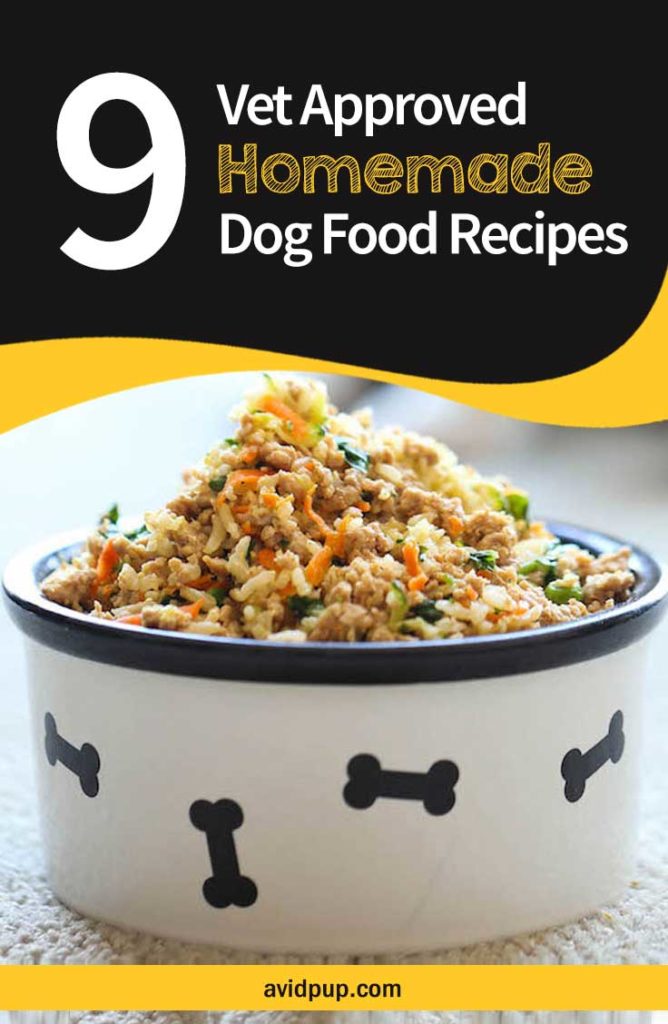
Here is a simple recipe for homemade dog food without chicken:
Ingredients:
- 1 pound ground beef
- 1 cup cooked rice
- 1 cup chopped vegetables (such as carrots, peas, and sweet potatoes)
- 1/2 cup chopped fruit (such as apples and bananas)
- 1 tablespoon olive oil
- 1 teaspoon fish oil
- 1/4 teaspoon salt
- 1/4 teaspoon dried parsley


Instructions:

- In a large bowl, combine the ground beef, rice, vegetables, fruit, olive oil, fish oil, salt, and parsley.
- Mix well until all ingredients are evenly distributed.
- Divide the mixture into individual servings and store in the refrigerator or freezer.
Serve size:


The amount of food you feed your dog will depend on their size and activity level. A good rule of thumb is to feed your dog about 2-3% of their body weight per day. So, for a 10-pound dog, you would feed them about 2-3 ounces of food per day.
Tips:
- When making homemade dog food, it's important to use fresh, high-quality ingredients.
- Cook all meats and vegetables thoroughly.
- Avoid adding salt or other seasonings to your dog's food.
- If you're not sure how much food to feed your dog, consult with your veterinarian.

Homemade dog food can be a great way to provide your dog with a healthy and nutritious diet. With a little planning, you can easily make delicious and affordable meals that your dog will love.
